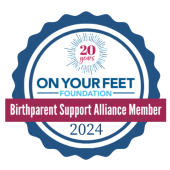Is a Home Study Required for a Private Adoption in the US

One of the first questions many families ask before moving forward with adoption is: is a home study required for a private adoption in the US? It’s an important topic that deserves a clear and honest explanation. This step is required in most states, and it’s designed to ensure safety and stability for every child involved in an adoption.
Both adoptive families and birth parents want to feel confident that the adoption process is secure, respectful, and legally sound. Knowing how a home study fits into the private adoption process can take away a lot of confusion and anxiety. In this article, we’ll walk through everything you need to know.
Before You Adopt, Is a Home Study Required for a Private Adoption
Yes, a home study is required for a private adoption in nearly all U.S. states. Even in cases where the adoptive family and birth parent know one another, most courts will typically still require an approved home study before finalizing the adoption.
This process isn’t meant to intimidate or discourage anyone. The goal is to make sure a child is being placed in a home that is emotionally and physically prepared. The home study includes interviews, safety checks, background screenings, and a written report that gets submitted to the court.
It’s also one of the first steps in the private adoption legal process. Adoptive parents often start their journey here before a match is even made. Without the home study clearance, it’s difficult, if not impossible, to proceed to the next steps of a private adoption.
As a hopeful parent looking into your options, asking if a home study is required for a private adoption is a smart starting point. It shapes what comes next in the process.
Why Is a Home Study Required in Private Adoption
A home study is required in private adoption because the court needs proof that the child will be safe, well cared for, and placed in a prepared home. It serves as both a practical evaluation of the adoptive household and an opportunity for the adoptive parents to prepare to welcome a child into their family.
The process looks closely at the family’s lifestyle, financial stability, background, parenting approach, and even their home environment. It helps identify any potential concerns early on and gives the court reassurance that the adoptive parents are ready.
Here’s what’s typically included in the private adoption home study:
- Criminal background and child abuse checks
- At least one in-home visit
- Interviews with all household members
- Reference letters from personal and professional contacts
- A written report from a licensed professional
The home study provider also helps adoptive parents get answers to questions, prepare for placement, and identify the best ways to support the child after adoption.
Every state has slightly different rules, but one thing stays the same: the home study is usually non-negotiable in private adoptions. It’s a foundational piece of the process that ensures children are placed in safe, capable homes.
How Long Does a Private Adoption Home Study Take
Most home studies take a few months from start to finish. The timeline depends on how quickly families complete paperwork, schedule appointments, and provide the required documentation. Availability of the home study provider also plays a role.
Some agencies offer expedited options for families who have already matched with a birth parent and need to move quickly, but this isn’t always available. Starting the private adoption home study early, before a match is made, can make the rest of the process smoother and faster.
Here’s what typically affects how long the process takes:
- How quickly background checks are cleared
- Completion of required training or education hours (if applicable)
- Scheduling flexibility for in-home visits and interviews
- How organized and responsive the family is with submitting documents
Families who ask early if a home study is required for a private adoption usually benefit by having time to gather what’s needed without feeling rushed or stressed.
What Documents Are Needed for a Private Adoption Home Study
The private adoption home study process involves several documents that help the agency complete an accurate and comprehensive home study report. Most of these are simple to collect, but it helps to start early and stay organized.
Common documents include:
- State-issued identification (driver’s license or passport)
- Birth certificates and marriage license (if applicable)
- Tax returns or proof of income
- Recent medical exams for all household members
- Pet vaccination records (if you have pets)
- Background clearances
- Reference letters from relatives and non-family members
Some states or agencies may require additional documentation based on your unique circumstances. These are not meant to create barriers, they’re meant to support a thorough evaluation. If you’re unsure about what to gather, the home study provider will give you a checklist and explain each item.
Asking if a home study is required for a private adoption also means asking what paperwork to expect. Families who are organized from the beginning often find the process much easier to manage.
How to Start the Home Study the Right Way
Starting the home study process doesn’t have to feel overwhelming. Once you’ve confirmed that a home study is required for a private adoption in your state, here are a few simple steps to help you move forward confidently:
- Choose a Licensed Provider – Make sure they are approved to complete home studies for private adoptions in your state. Your attorney or agency can usually offer referrals.
- Ask Questions – Don’t hesitate to ask about fees, timelines, and paperwork. A supportive provider will walk you through every step.
- Start Gathering Documents – Get a head start on financial records, medical exams, and reference letters. This helps reduce stress later.
- Be Honest and Open – The home study isn’t about being perfect. It’s about being prepared and open to support.
- Use the Time to Learn – Many families find the process helpful as they prepare emotionally for adoption.
The Role of the Home Study in Private Adoption
Asking “Is a home study required for a private adoption?” shows that you’re thinking ahead, and that’s one of the best ways to begin the process. Yes, the home study is required in most private adoptions. And yes, it’s a detailed process. But it’s also a tool to support adoptive families for the journey ahead.
Through adoption education and thorough assessment of the adoptive family, the home study plays a key role in ensuring every child is placed in a safe, loving, and prepared home. With the right support, it doesn’t have to feel stressful; it can actually build your confidence as you take the next step.
We hope this guide has helped bring clarity to your questions and offered encouragement along the way. If you’re ready to learn more, we’re here and ready to help.
Whether you’re an adoptive family starting the process or a birth parent exploring your options, we’re here to help. The private adoption legal process can feel complex at first, but you don’t have to go through it alone.
Visit our website at the Adoption Center for Family Building to learn more or contact us directly to speak with someone who can guide you personally. Our team offers compassionate support, professional guidance, and a genuine commitment to helping families grow with care.



